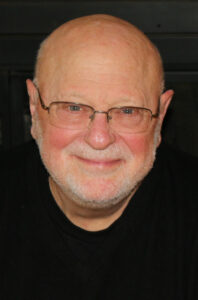By Hal Green
Pondering Prayer Column

Augustine of Hippo (354-430) has been called the most significant Christian theologian after the apostle Paul. He famously said, “Love God and do as you please.” While that seems very freeing, what St. Augustine meant was this: if you truly love God, you will want to please God. You will not seek to do anything that is displeasing to God. That is, of course, an extraordinary challenge. For Augustine, however, this was more than a challenge; it was a command. What he said, more as instruction than as prayer, can be meditated on as foundational to prayer:
“Therefore once for all this short command is given to you: ‘Love and do what you will.’ If you keep silent, keep silent by love: if you speak, speak by love; if you correct, correct by love; if you pardon, pardon by love; let love be rooted in you, and from the root nothing but good can grow.”
In short, whatever you do, let it be done in the name and spirit of love. That also signifies the Holy Spirit, understood as the very love of God. Take to heart the succinct summary of the apostle Peter: “Above all, love each other deeply, because love covers over a multitude of sins” (1 Peter 4:8 NRSV).
Another major Christian theologian was St. Bernard of Clairvaux (1090-1153). One of the “Doctors of the Church,” he wrote an important treatise titled “On Loving God.” In that treatise, Bernard identified four progressive stages to loving God. First, loving yourself for your own sake. Second, loving God, also for your own sake, namely for the possible benefits to you. Third, loving God for God’s sake, after you have come to know God. Fourth, loving yourself for God’s sake. This surprising final stage may be reached only when you finally realize that if you do not love yourself, you will not be open to receive or accept God’s love for you.
It is not that one stage is wrong or sinful; rather it is where you happen to be. When you encounter God, you will discover decisively that God is the most lovable of all persons; you will love God because God is who God is, rather than for what God can do for you. You will want to love and take care of yourself for the sake of the God who loves you.
(Hal Green, Ph.D., is author of Pray This Way to Connect with God. You can contact him at drhalgreen@gmail.com.)











